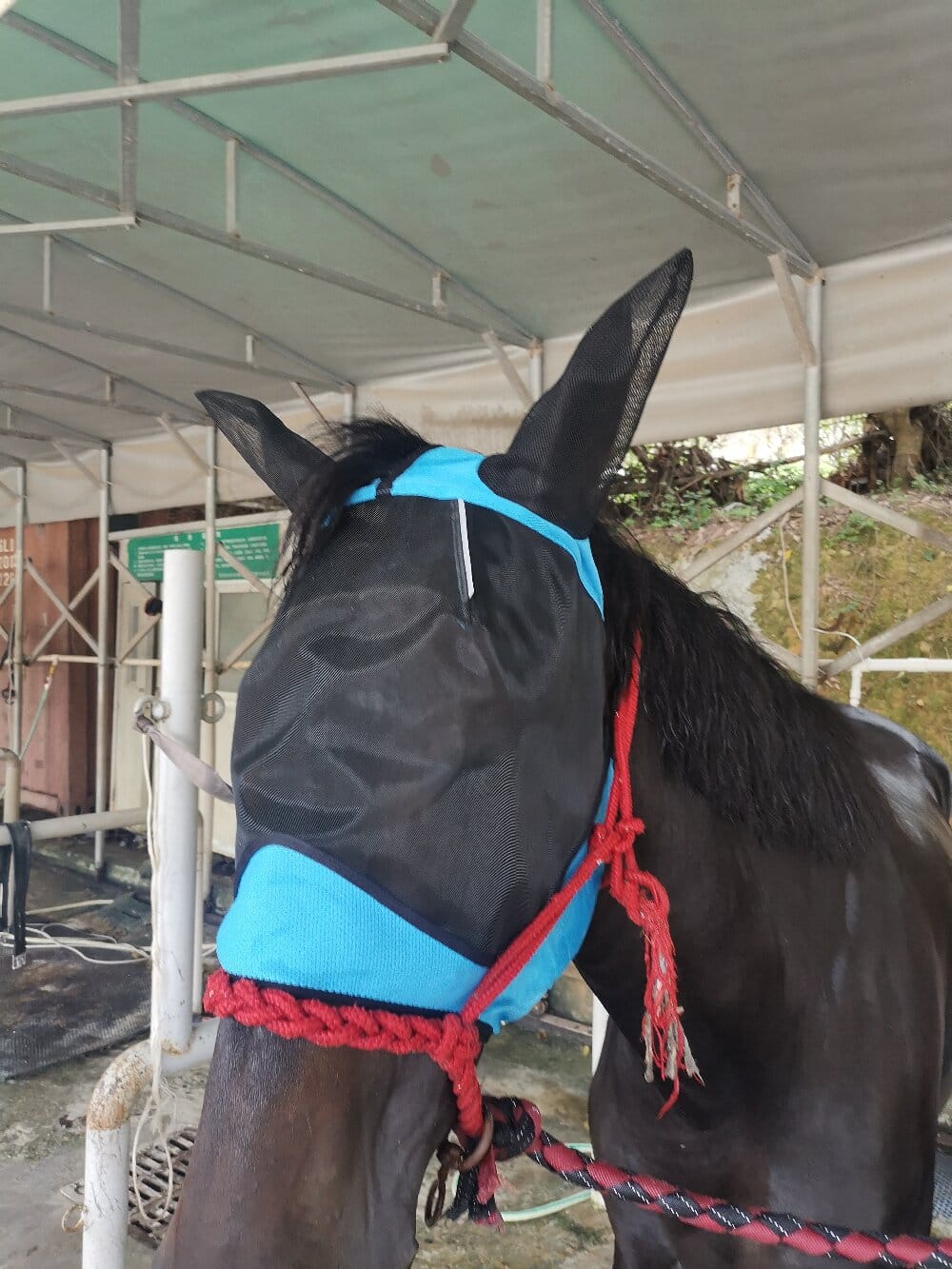A horse fly mask is an essential piece of equine gear designed to protect horses from irritating and potentially harmful insects. These masks shield a horse’s eyes, ears, and face from flies, mosquitoes, and other pests that can cause discomfort, infections, or even diseases. Beyond mere protection, fly masks also contribute to a horse’s overall well-being by reducing stress and improving focus during training or grazing. From a data interpretation perspective, the effectiveness of these masks can be measured through behavioral observations, veterinary reports, and pest interaction studies.
The Science Behind Fly Masks: How They Work
Modern horse fly masks are engineered using lightweight, breathable materials such as mesh or polyester, often treated with UV protection to safeguard against sun damage. The design prioritizes visibility and airflow while creating a physical barrier against insects. Data from equine studies show that horses wearing fly masks exhibit fewer signs of agitation, such as head shaking or tail swishing, compared to those without protection. Additionally, masks with extended ear covers can prevent pests from entering the ears, reducing the risk of infections.
Choosing the Right Fly Mask: A Multi-Perspective Approach
Selecting the best horse fly mask involves considering multiple factors, including fit, material, and additional features. Here’s a breakdown of key considerations:
- Fit: A properly sized mask ensures comfort and prevents rubbing or slipping.
- Material: Breathable, durable fabrics with UV protection offer dual benefits.
- Design: Some masks include detachable ear covers or nose flaps for added protection.
- Visibility: Clear mesh around the eyes maintains the horse’s field of vision.
From an owner’s perspective, ease of cleaning and durability are also critical, while veterinarians emphasize hygiene and pest prevention.
Data-Driven Benefits of Using a Horse Fly Mask
Research and anecdotal evidence highlight several advantages of using fly masks:
- Reduced Stress: Horses experience less irritation, leading to calmer behavior.
- Health Protection: Lower risk of eye infections or parasite-borne illnesses.
- Improved Performance: Uninterrupted training sessions due to fewer distractions.
Data from equine health surveys indicates that horses wearing fly masks have fewer vet visits related to insect-borne issues, underscoring their practical value.
Common Misconceptions and Expert Insights
Some horse owners hesitate to use fly masks, fearing they might restrict vision or cause overheating. However, studies confirm that well-designed masks do not impair a horse’s sight or airflow. Experts recommend introducing the mask gradually to allow the horse to acclimate. Additionally, regular cleaning prevents bacterial buildup, ensuring the mask remains hygienic and effective.
Conclusion: A Small Investment with Big Returns
A horse fly mask is more than just a seasonal accessory—it’s a vital tool for maintaining equine health and comfort. By combining scientific data, expert opinions, and practical experience, it’s clear that these masks offer significant benefits. Whether for pasture turnout, training, or competition, investing in a high-quality fly mask ensures your horse stays protected and stress-free throughout the bug-heavy months.

